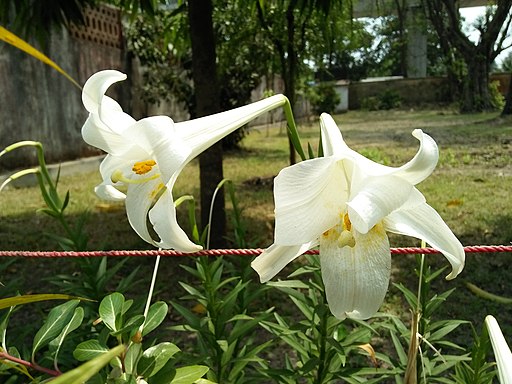What Plants are Poisonous to Cats?
What Plants are Poisonous to Cats?
As pet parents we know that our cats get into a lot of things including things they shouldn’t eat. But what about plants? Most of us know lilies are deadly but are there others? Here’s 12 plants you may have that are poisonous to your cat.
1. Autumn Crocus

Generalrelative, CC BY-SA 4.0, via Wikimedia Commons
2. Azaleas

Marianafloresocampo, CC BY-SA 4.0, via Wikimedia Commons
3. Cyclamen

Dominicus Johannes Bergsma, CC BY-SA 4.0, via Wikimedia Commons
4. Daffodils

Cbaile19, CC0, via Wikimedia Commons
5. Dieffenbachia

Tomáš Kebert & umimeto.org, CC BY-SA 4.0, via Wikimedia Commons
6. Hyacinth

Elf – [1], CC BY-SA 3.0, via Wikimedia Commons
7. Kalanchoe

Sabina Bajracharya, CC BY-SA 4.0, via Wikimedia Commons
8. Lilies

Halder97Sudipto, CC BY-SA 3.0, via Wikimedia Commons
9. Oleander

Challiyan at Malayalam Wikipedia, CC BY 3.0, via Wikimedia Commons
10. Rhododendrons

Agnes Monkelbaan, CC BY-SA 4.0, via Wikimedia Commons
11. Sago Palm

12. Tulips

John O’Neill, CC BY-SA 3.0, via Wikimedia Commons
Want a handy infographic to put on the fridge? We have one for you below.

Do you have any of these plants in your home? If so, make sure to remove them or place them into a room where your cat cannot get to them. If you believe you pet has ingested any of these plants, call the Pet Poison Helpline and seek veterinary help immediately. Want to know more? See our previous post on Houseplants That Are Toxic to Pets.

Were any of these plants that are poisonous to cats new to you? Let us know in the comments or @WetNosesPetSitting or #WetNosesPetSitting. We’d love to hear your feedback.
Did you know mushrooms can also be toxic to cats? See our blog post here to learn more about what mushrooms are toxic to pets.







